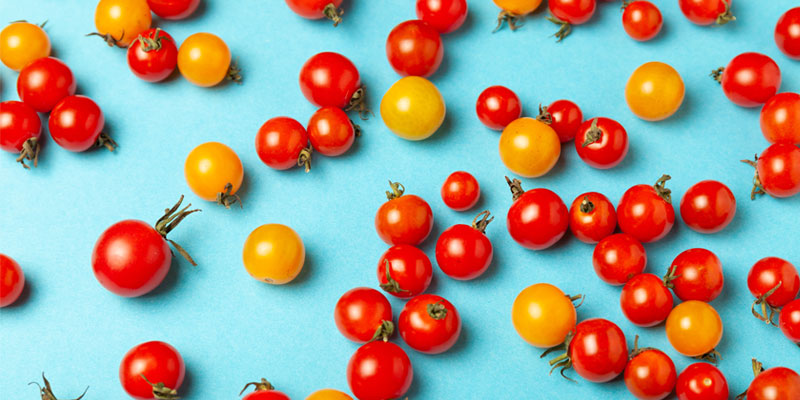5 Reasons Not to Go On a Diet This Year and What to Consider Instead

January is commonly known as “national dieting month.” This cycle is overdue for a change. Each year people all over the world set out to make the most of the New Year’s blank slate. New year, new me as the saying goes. Willpower is often emphasized at the expense of other factors. This introduces a problematic scenario for dieters, as it reinforces the idea that failed attempts are a personal shortcoming. Unlike the popular misconception, it is dieting itself, not personal willpower, which is the issue.
When it comes to dieting, buyer beware. Research indicates that diets do not produce long-term weight loss or health results. In fact, in many cases they lead to net weight gain. Additionally, they often bring about a whole host of negative side effects. Harmful effects of dieting include ruined relationships with food, negative body image, altered hunger and satisfaction cues, decreased metabolism, and negative effect on social life. Evelyn Tribole and Elyse Resch noted in their book Intuitive Eating, “If dieting programs had to stand up to the same scrutiny as medications, they would never be allowed for public consumption.”
You’ll likely be bombarded with diet messages this month, which makes it essential to be armed and prepared with all the facts prior when considering a new diet. Below are a few reasons to avoid dieting and a few suggestions for where to redirect those efforts.
What is the problem with dieting?
- Diets do not produce sustainable results. Although they may bear short-term weight loss results, research indicates that 95% of people who diet end up gaining the weight that they initially lost. Of that 95%, 2/3 of the people will end up gaining more weight from when they began their diet. This often leads to a vicious yo-yo dieting cycle. The literature shows us that weight cycling (losing weight–> gaining weight–>repeat) is actually more harmful to our health than just staying at a higher more sustainable weight. A 2007 team of ULCA researchers reviewed over 30 studies on dieting and found that dieting is actually a predictor of subsequent weight gain and is not a sustainable solution to healthy living. Another study in 2003 focused on nearly 17,000 kids ages 9-14 and found similar conclusions. In addition to weight gain in the long-term, several studies have found that weight cycling may lead worsened states of cardiovascular and metabolic disorders (such as high blood pressure and diabetes).
- Dieting is a form of starvation. Since our bodies are wired for survival they will go into compensatory mode when it senses that it’s not getting the amount of fuel it is accustomed. Consequently, this results in decreased metabolic rates. This is important because it leads to your body not burning as many calories as it is used to when it’s resting. A perfect example of this phenomenon is demonstrated by the participants from the TV program, “The Biggest Loser.” It was found in this study that they were burning approximately 500 fewer calories a day than other people similarly situated in age and size. The drop in a functioning metabolism is why it’s more difficult to lose weight. This is compounded by an increase in hormones that hold onto body fat. Each time you diet your body is holding onto its fat stores and lowering your metabolism to survive. It’s important to recognize that your body is doing an important job here of trying to protect you. Your body or your willpower is not necessarily the enemy here.
- Diets increase cravings. In response to calorie deprivation, levels of leptin (our satiety hormone) decrease, and levels of ghrelin (the hunger hormone) increase. As a consequence, individuals in a deprived state of calories experience more hunger. These feelings of hunger remain for deprived individuals even after eating a regular meal. This issue is further exemplified by the pattern of restriction that then swings to binging we often see paired with dieting. This cycle is known as the restrict - binge - repent - repeat cycle. In order to break this cycle, the dieter may first need to recognize that binging does not inherently indicate that anything is wrong with them or their willpower. Instead, binging may likely be actual biological reaction to deprivation and dieting.
- Diets may not only be harmful to our physical health, but also to our mental health as well. The implications of starvation mode on the body goes well beyond a slowed metabolism. It often leads to negative mental and social implications. The Minnesota Starvation Experiment was conducted in the 1940s on 36 men and is considered one of the most important studies on the mental and social effects of food restriction. These men did not experience extreme starvation, but instead were limited to approximately 1,600 calories a day. As context, many programs such as Jenny Craig or Weight Watchers provide meal plans with calorie allotments of just 1,200 calories per day. The results of the Minnesota Starvation Experiment indicated that men who were not depressed prior to the study ended up scoring very high on depression and anxiety scales. Some even started to hallucinate. Most ended up just wanting to read and talk about food, which is also known as food preoccupation.
- Diets also harm our social lives. In addition to thoughts of preoccupation, dieters often find themselves becoming more socially distant due to rigid rules. These rules often make it difficult to find “approved” foods when out socializing. This poses a problem when considering health overall since connectedness is an important part of health and studies even link it to longevity. Additionally, research has linked loneliness to higher risks for a variety of physical and mental conditions: high blood pressure, heart disease, obesity, a weakened immune system, anxiety, depression and Alzheimer's disease.
If diets don’t work, then what’s the alternative?
In a society so heavily influenced by diet culture, it can be tough to come to terms with the the fact that dieting and weight loss wont necessarily make you healthier. However, this does not mean that improving your health is impossible. Fortunately, there is an alternative and more sustainable solution, which emphasizes small changes in eating habits. This more mindful approach focuses on the importance of listening to your body as opposed to following rigid diet rules.
It is helpful to think about what was the initial impetus of your your interest in dieting and weight loss. Popular reasons include improved health, enhanced energy, and increased confidence and happiness. As noted before, dieting may actually provide you with the opposite results.
An individual rarely makes a dramatic lifestyle change and sticks to it in the long-term. There are of course outliers. Rather than focusing on restriction or on an entire diet overhaul, it’s best to focus on making tiny habit changes. These tiny habit changes compound overtime leading to success which may be measured by enhanced health AND happiness. Succeeding at a small goal leads to increased motivation to tackle other more ambitious goals. Above all, remember that slow and steady wins the race.
Goal setting tends to be most successful when one or two are worked on at a time. Additionally, it helps to ensure that they are SMART goals. SMART is a useful acronym used to help you define your goals. To be smart the goal must be specific, measurable, attainable, relevant and time-based. Here are some goals for you to consider:
- Eat more plants. Plants are densely packed with nutrients that will nourish you and make you feel your best. Hilary’s makes achieving this goal not only delicious, but convenient as well! In order to make this a SMART goal you should aim to have a certain number of plant-powered meals per week.
- Aim to cook and eat at home more often. Plan meals that allow you to cook once, but eat twice or even three to four times. Making larger quantities and saving for leftovers is a great way to put a greater emphasis on home cooked meals without spending all your time in the kitchen. Some ideas include Chili, stews, soup or casseroles. Or you can make one dish and repurpose it. For example, roast veggies one night and then use leftovers to make an extra nourishing lunchtime salad, veggie-filled tacos, or throw them in a quinoa, pasta, or rice dish.
- Drink more water. In order to form the habit of drinking more water, it is important that you start small. Don’t try to drink 80 ounces the first day! Start by tracking your current consumption and add 8 more ounces each day or so.
- Master mindful eating. Take a moment to think about your biggest distraction during meals. Do you watch TV while eating dinner? Or do you scroll through your Instagram feed at lunch? Research shows that electronic distractions often lead to overeating. Finding a way to ditch the distraction and create a habit of more mindful eating can go a long way towards sustainable eating. Consider aiming for 1 mindful (distraction-free) meal per day to start.
- Embrace Intuitive Eating. Intuitive Eating encompasses the principles of mindful eating, but on a deeper level with addition of 10 other principles. Principles addressed include the importance of rejecting the dieting mentality, body respect (regardless of your size), coping with emotional eating, and nutrition and movement.
-----------------
Rebecca Ditkoff, MPH, RDN, CDN is a Registered Dietitian specializing in digestive health and disordered eating. Her non-diet approach to nutrition is rooted in the theories of Intuitive Eating and Health at Every Size (HAES) in which she emphasizes self-care over rigid diet rules and restriction . She is the founder of Nutrition by RD, a brand dedicated to helping people improve their relationship with food and their bodies. Rebecca also runs a virtual nutrition counseling practice from New York, NY where she works with clients one-on-one providing personalized nutrition counseling. She has been featured in a number of publications including: Women’s Health, Prevention, Forbes, Real Simple, The Huffington Post, and many more. Rebecca enjoys traveling, live music, daily trips to the dog park with her Chihuahua-mix named Winnie, and experimenting with new recipes in the kitchen.

